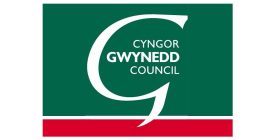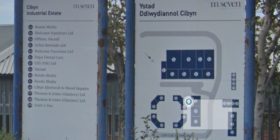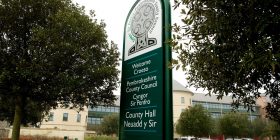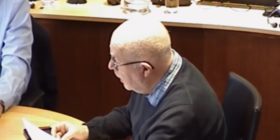Gwynedd standards watchdogs have no new Ombudsman complaints’ over members

Gwynedd council standards watchdogs have received no new decisions from the Ombudsman over complaints.
In a report concerning “allegations against members” the Standards Committee heard that nothing new had come from the investigative body since its last report.
The Ombudsman is the body which has the legal power to look into complaints about public services and independent care providers in Wales.
It can impartially investigate complaints when councillors are accused of breaching their authority’s code of conduct.
The meeting, yesterday (June 26) was told that the Standards Committee had only decided on one complaint, previously, which had been referred to its members.
That matter had been discussed in a separate item by the committee and had concerned the outcome of a complaint against Councillor Louise Hughes.
She had apologised, been sanctioned with a one-month ban and had not appealed the decision, and the matter was now closed.
The committee had also been presented with a report item concerning allegations against other members.
Authored by Siôn Huws, the propriety and elections manager, the information was presented to the committee, chaired by Eifion Jones, and with procedural matters relayed by the council’s Monitoring Officer Iwan Evans.
A report included an analysis of this year’s complaints for 2022/23 where a decision had been received.
There had been three members of a community council who were subject of complaint- but only one was a member of Gwynedd Council.
The complaints had been made by one councillor, two members of the public and one council officer.
The nature of the allegations has concerned “general conduct” in all four cases.
In the outcomes, no investigation had followed in two of the reported cases.
There was one investigation which resulted in “no evidence being presented,” in a case of breaching the code of conduct.
One investigation was also discontinued, and only the one matter had led to an investigation and had been referred to the Standards Committee.
In the category of “open cases” the situation in relation to other cases included:
Ombudsman considering whether to investigate; none.
Ombudsman investigating; three, cases referred to the Standards Committee; none.
And cases referred to the Adjudication Panel for Wales; none.
It was recommended and agreed at the meeting that the Standard Committee members formally note the information.
The committee had also accepted the minutes of the previous meetings, including one held on February 2, 2023.
In those minutes, the Propriety and Elections Manager had highlighted that fewer complaints had been received in 2021-22 than in 2020-21.
The number in 2020-21 had however been “unusually high” and it noted that the trend was “generally on the rise.”
A higher number of complaints had been received about town and community councillors, but it was noted there were more town and community councillors operating than county councillors.
The level of support available for town and community councillors “could also vary,” the report noted.
Around half of the complaints related to “promoting equality and respect.”
Complaints regarding “respect” were considered “more low-level” matters and the “equality” complaints, where there was an element of “differentiation” were considered “more serious matters.”
In terms of local solutions, the report found that “the emphasis would fall on training”.
By BBC LDRS
Spotted something? Got a story? Email News@News.Wales











